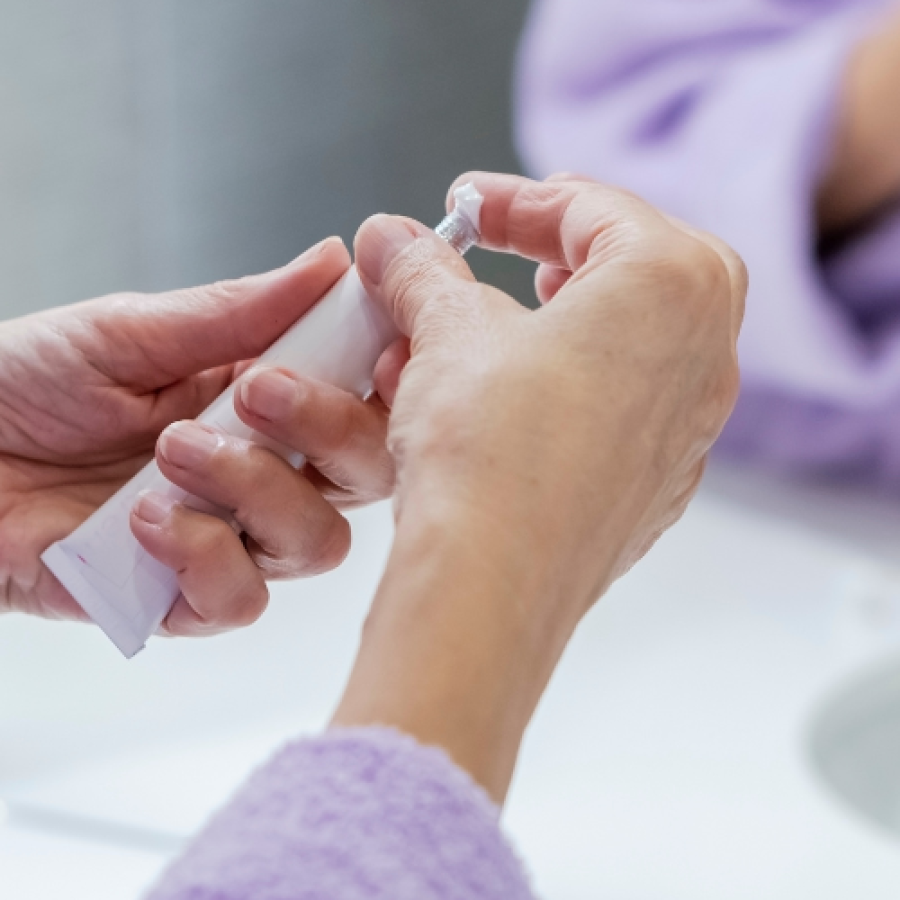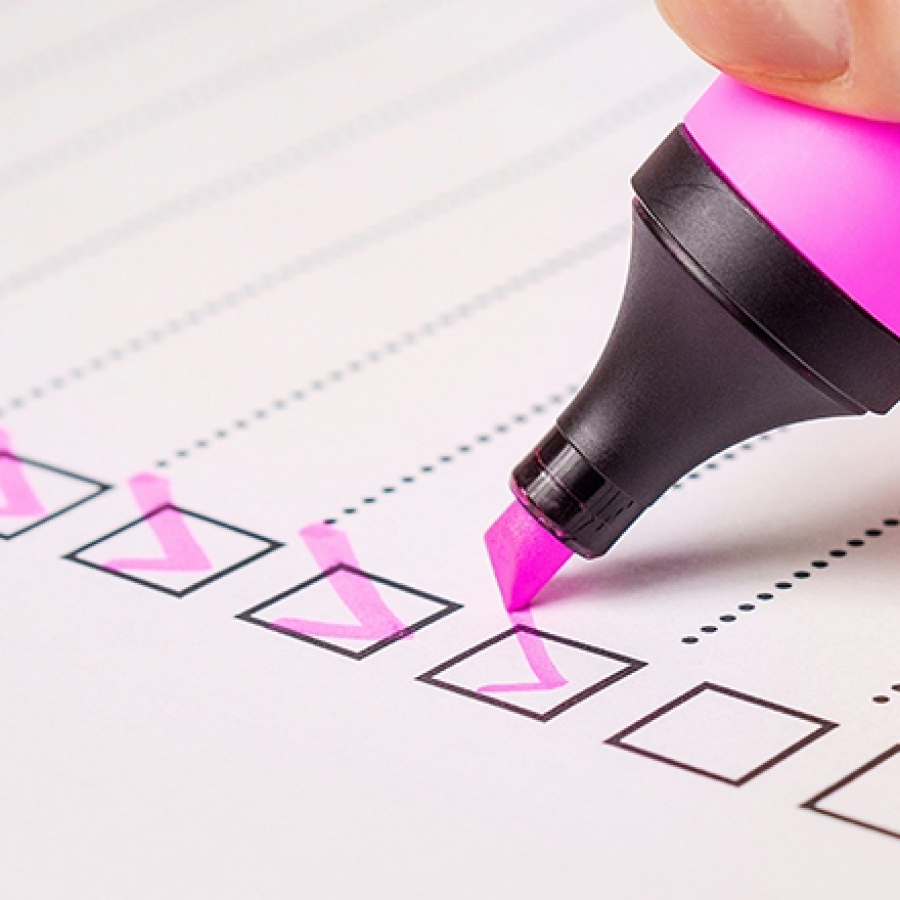
Clinical
How to Talk to Your Patients About BHRT
By Belmar Pharma SolutionsYour bustling, successful practice is full of women who really care about their appearance, and they trust ...

Show your committment to patient safety, legal compliance and community over competition.
AmSpa members receive preferred pricing on all AmSpa live and virtual trainings.
Get the latest news and information about safe, legal practice in medical aesthetics directly in your inbox.
Get access to med spa laws, in-person and online training and more!
Posted By Madilyn Moeller, Tuesday, August 5, 2025

Impostor syndrome. It’s a phrase that’s become all too common, echoing in the minds of new injectors, seasoned aestheticians, business owners, and even those at the top of their game. At this year’s Medical Spa Show, Erica Barry, NP-C and Libby Dysart, co-owners of a thriving medical aesthetics practice in Washington, D.C., tackled this topic head-on.
If you missed the high-energy, humor-filled, and deeply honest session, the recording is now available to view on-demand. This is more than just an educational lecture. It’s a candid, empowering roadmap for anyone who’s ever felt like they didn’t belong in the room, wondered if they were good enough, or hesitated to hit “post” on that business-changing Instagram reel.
Here, we’ll unpack the highlights, insights, and practical takeaways from our session, and show you why you should catch the full recording to experience the real magic.
Impostor syndrome doesn’t discriminate. Whether for new injectors terrified to show up online, seasoned pros questioning their skills at a live training, or ambitious entrepreneurs plotting to open a med spa, that feeling of not being “enough” sneaks in.
This session defines impostor syndrome simply: It’s the voice that tells you you’re inadequate, even when your resume, experience, and results say otherwise. It strikes hardest in professions like aesthetics, where comparison—fueled by social media—can be relentless. The hours of training, the certifications, the wins: somehow, none of it feels quite enough.
But here’s the good news: Everyone feels it, from entry-level employees to top-tier business owners. And you’re never as alone as you think.

What’s the antidote to impostor syndrome? Confidence. And, as we revealed, confidence isn’t some magical personality trait you’re born with—it’s a muscle you can train.
Confidence is not the absence of nerves; it’s the byproduct of willingness to try, mess up, try again, and slowly get better. This mindset fuels progress at all levels, whether you’re filming your first reel or leading a team of providers.
In medical aesthetics, social media is both a boon and a nemesis. It lets us showcase our results, learn new techniques, and connect with peers—but also makes us question our worth the moment someone else posts a perfectly edited before-and-after. Don’t get caught up in the filtered experience of social media feeds. Stay in your lane. Admire others, but don’t put them on pedestals that diminish your own achievements.
Confidence needs to be visible. Whether you’re consulting with a patient, checking in a client, or streaming on Instagram Live, you can stand out by embodying presence (full attention), power (open posture, confident energy), and warmth (authentic listening and kindness).
Environment matters: confidence, like any emotion, is contagious.
What brings on impostor syndrome? New challenges, tough feedback, the feeling of being called out for not knowing everything. Flip the script: these “triggers” can be fire-starters, not red flags. The moments we’re pushed out of our comfort zone are the precise moments we grow the most.

No one knows everything. And moments of vulnerability—even visible mistakes on social media—can work in your favor. Misspelled words, visible lipstick on your teeth, awkward moments: they drive engagement, visibility, and ultimately help humanize your brand.
Remember: perfection isn’t the goal: progress is.
Don’t wait until you’re ready. Every expert was a beginner; every thriving injector once picked up a syringe for the first time. If you show up every day, get 1% better daily, and log 18 focused minutes on a single skill (as supported by Anders Ericsson’s research), you’ll lap the competition.
Here are some of the actionable strategies covered in the recording:
Impostor syndrome isn’t a sign of failure. It’s a badge that you’re growing, stretching, and striving for more. If you’re ready to turn fear into fuel, to stand confidently in your brand (gown, sneakers, or scrubs), and to take the kind of imperfect action that changes careers and lives, this talk is for you.
Access the full recording now. Share it with your team, your friends, or anyone who needs a boost of confidence, and let’s keep the conversation—and the progress—going. Together, we’ll make this the year you leave impostor syndrome behind—and step into your full potential.

Ready to watch? Click here for the full session recording!
Related Tags
Medical spa news, blogs and updates sent directly to your inbox.

Clinical
By Belmar Pharma SolutionsYour bustling, successful practice is full of women who really care about their appearance, and they trust ...

Business
By XiteAs the medical aesthetics industry continues to mature, many medical spa owners are beginning to think seriously about retirement ...

Business
By Adam Reinebach, Chief Executive Officer, American Med Spa Association (AmSpa)Since stepping into the CEO role at AmSpa, I’ve spent ...

Clinical
Win Free Exosomes → Simply Register for the Free Exosome Masterclass By MedResultsIn today’s rapidly evolving aesthetic landscape, one ...